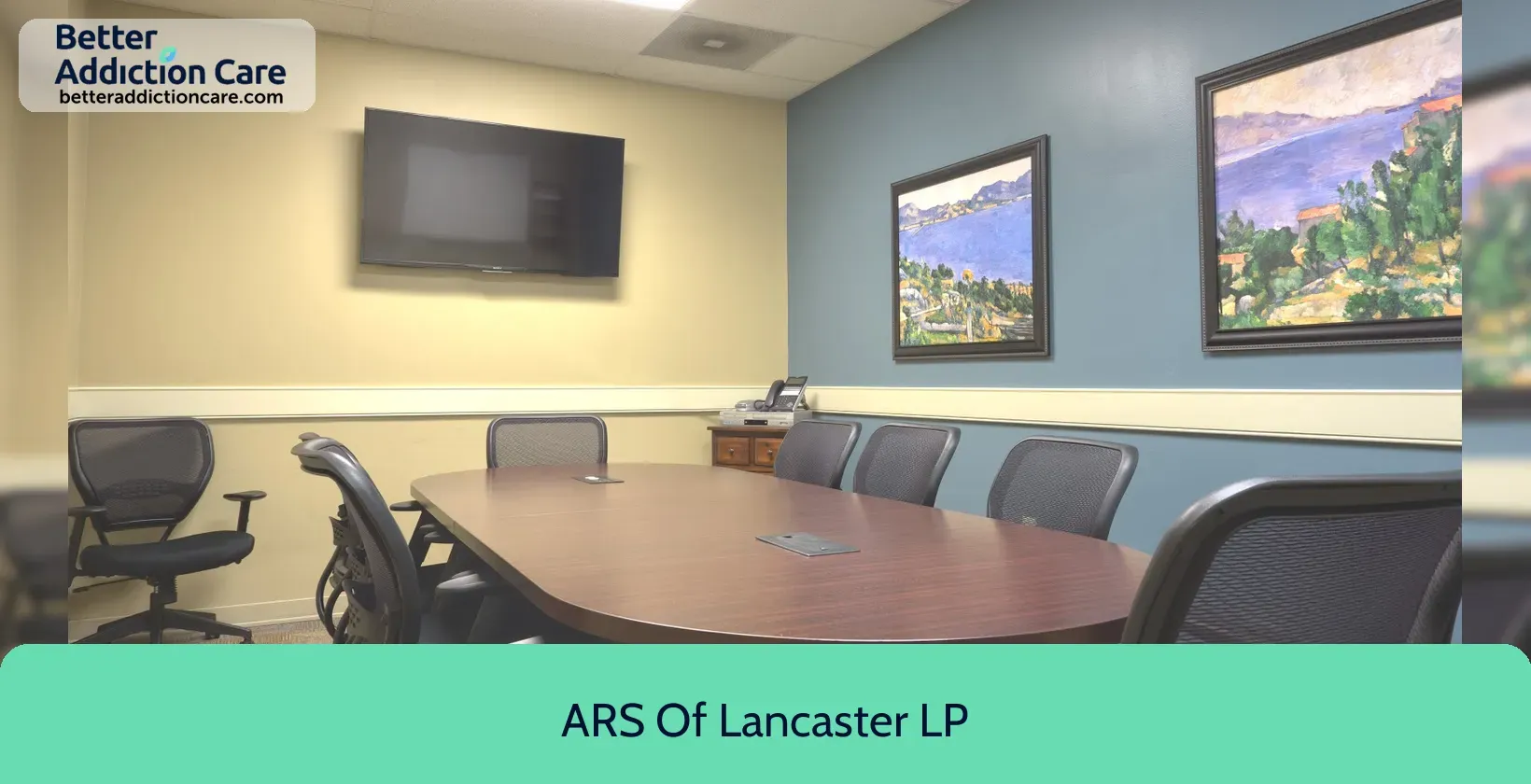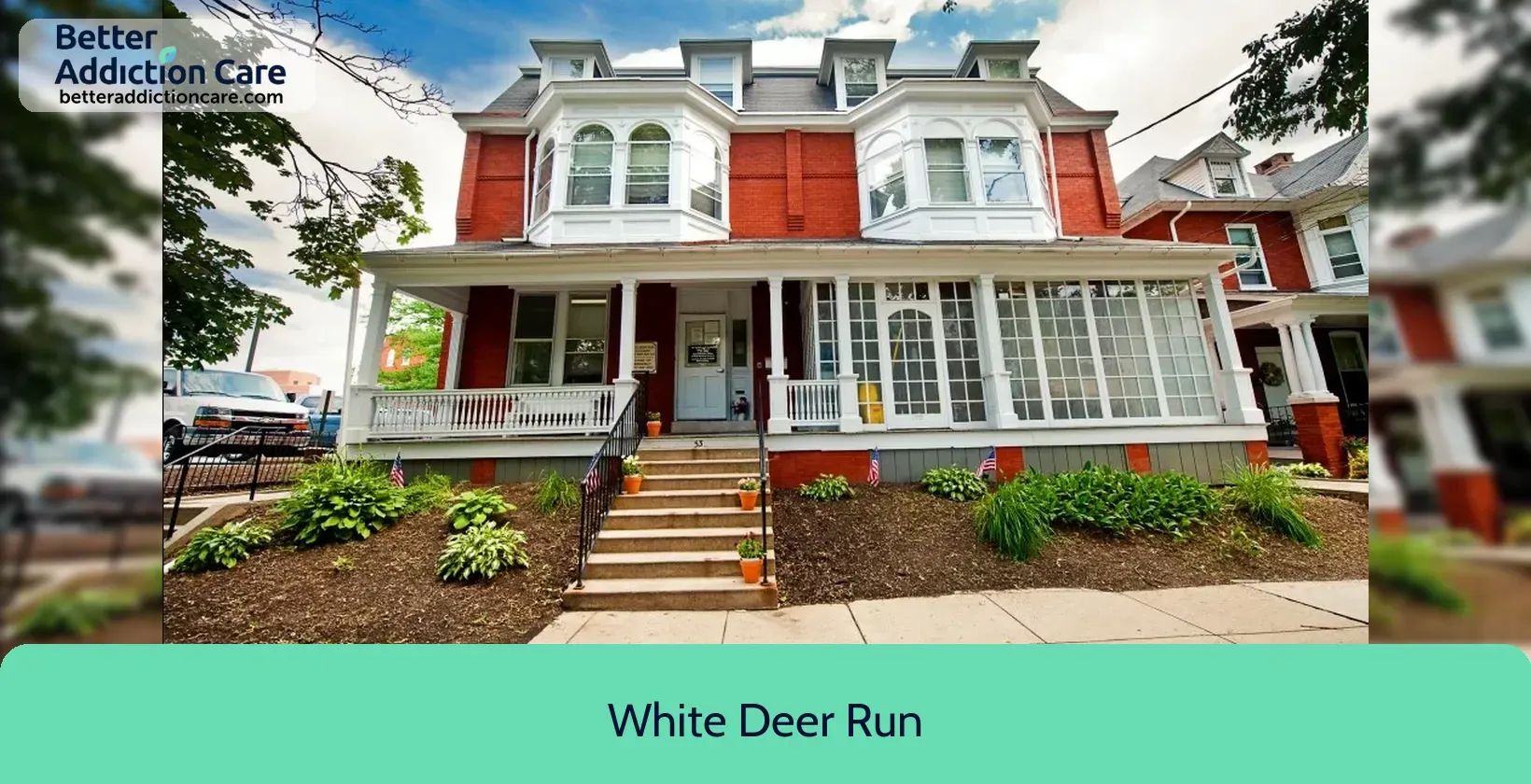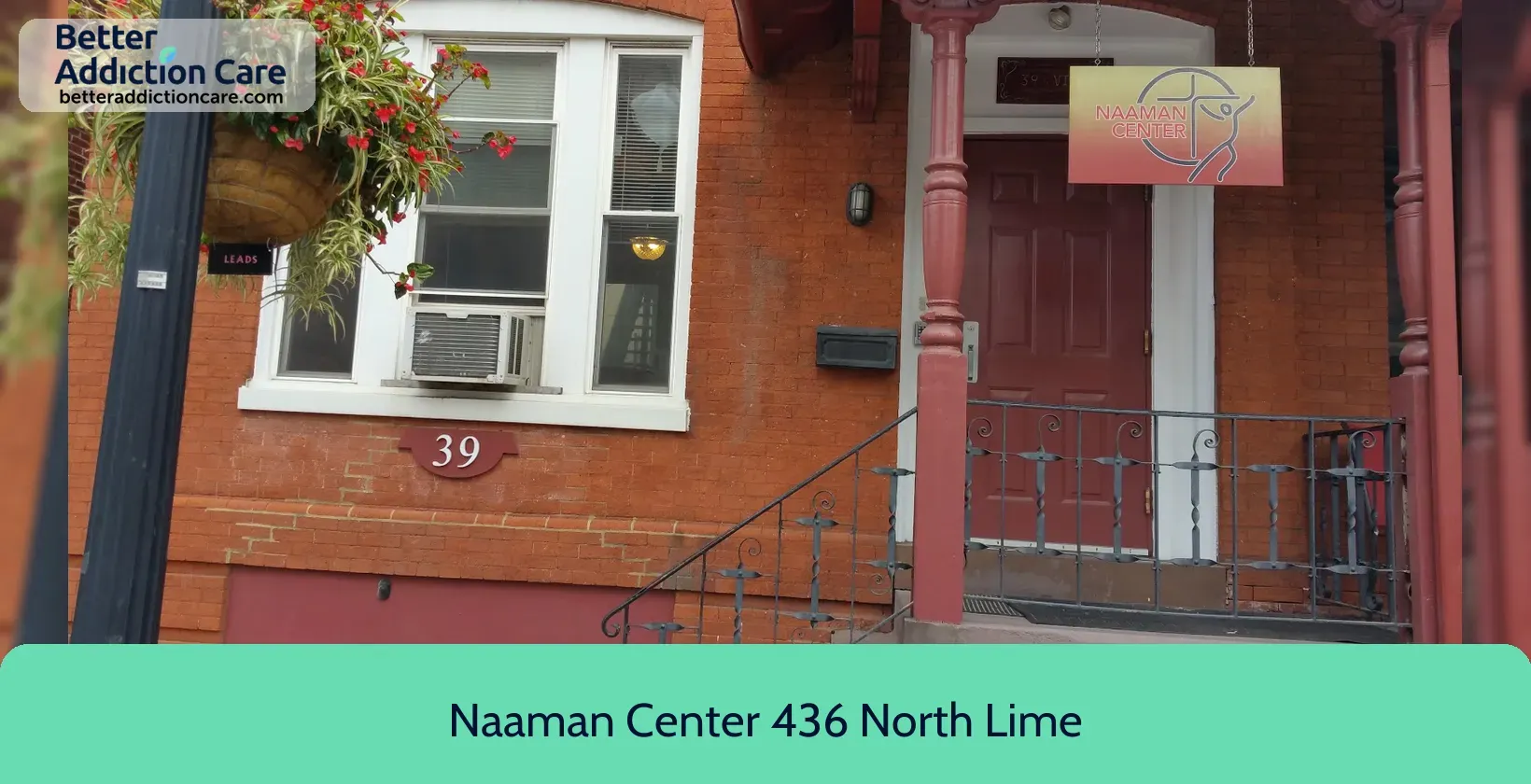Naaman Center 436 North Lime Street
Overview
Naaman Center 436 North Lime Street is a substance abuse treatment center for people seeking treatment near Lancaster County. As part of their treatment modalities for recovery, Naaman Center 436 North Lime Street provides cognitive behavioral therapy, telemedicine/telehealth therapy, and substance use disorder counseling during treatment. Naaman Center 436 North Lime Street is located in Lancaster, Pennsylvania, accepting cash or self-payment for treatment.
Naaman Center 436 North Lime Street at a Glance
Payment Options
- Cash or self-payment
- Medicaid
- State-financed health insurance plan other than Medicaid
- Private health insurance
- Federal, or any government funding for substance use treatment programs
Assessments
- Screening for tobacco use
- Comprehensive substance use assessment
- Interim services for clients
- Outreach to persons in the community
- Screening for mental disorders
Age Groups
- Children/adolescents
Ancillary Services
- Case management service
- Social skills development
- Transportation assistance
Highlights About Naaman Center 436 North Lime Street
7.37/10
With an overall rating of 7.37/10, this facility has following balanced range of services. Alcohol Rehabilitation: 8.00/10, Drug Rehab and Detox: 7.23/10, Insurance and Payments: 6.53/10, Treatment Options: 7.70/10.-
Alcohol Rehabilitation 8.00
-
Treatment Options 7.70
-
Drug Rehab and Detox 7.23
-
Insurance and Payments 6.53
Accreditations
State department of health:

Government agencies issue State Licenses, granting permission to rehabilitation organizations to conduct their business operations lawfully within specific geographic regions. Generally, the particular rehabilitation programs offered by a facility and its physical location dictate the necessary licenses needed for legal operation.
Treatment At Naaman Center 436 North Lime Street
Treatment Conditions
- Alcoholism
- Substance use treatment
Care Levels
- Outpatient
- Outpatient methadone/buprenorphine or naltrexone treatment
- Intensive outpatient treatment
- Regular outpatient treatment
- Aftercare
Treatment Modalities
- Cognitive behavioral therapy
- Telemedicine/telehealth therapy
- Substance use disorder counseling
- Trauma-related counseling
- Smoking/vaping/tobacco cessation counseling
Ancillary Services
Languages
- Spanish
- Other languages (excluding Spanish)
- French
Additional Services
- Pharmacotherapies administered during treatment
- Housing services
- Breathalyzer or blood alcohol testing
Special Programs
- Clients who have experienced trauma
Get Help Now
Common Questions About Naaman Center 436 North Lime Street
Contact Information
Other Facilities in Lancaster

6.68

7.00

6.62

7.61

6.74

6.68

7.41

7.40
DISCLAIMER: The facility name, logo and brand are the property and registered trademarks of White Deer Run, and are being used for identification and informational purposes only. Use of these names, logos and brands shall not imply endorsement. BetterAddictionCare.com is not affiliated with or sponsored by White Deer Run.

